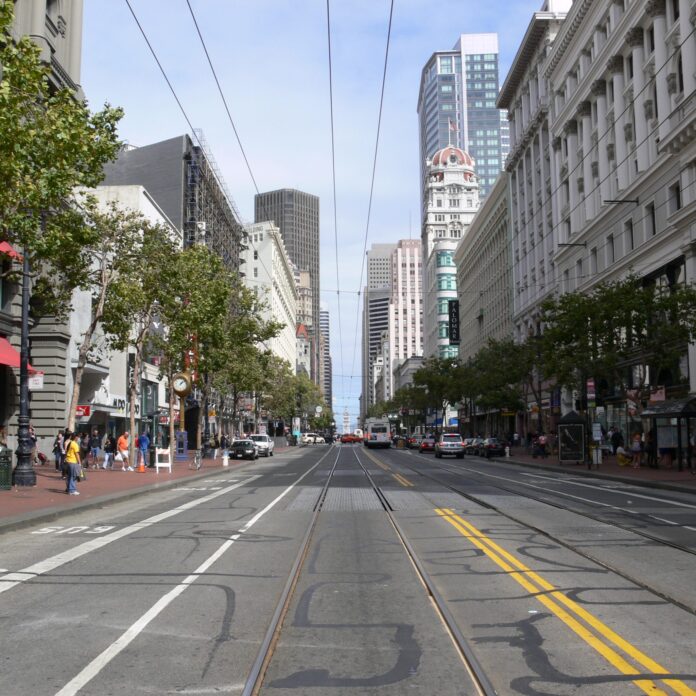Verizon Wireless and ExteNet Systems are preparing to deploy more than 400 small cells in SF
Hundreds of San Francisco residents are getting a lesson in small cells this summer, as Verizon Wireless and ExteNet Systems prepare to deploy more than 400 nodes on poles owned by the city and the public utility. The city is requiring the companies to notify residents about what’s coming, and the city’s wireless planner says that so far there have been just a handful or questions or complaints.
ExteNet Systems said that the project will include more than 300 nodes in the northern part of San Francisco, as well as more than 100 nodes south of Market Street.
“We are doing the long march through the city approval process to get our nodes built,” said ExteNet CEO Ross Manire. “The challenge within the city of San Francisco is working through the various approval processes to actually get the nodes constructed. We’re actually … pretty close to complete on the fiber builds, but we’ve still got to get all the nodes approved so we can get those constructed.”
“We haven’t even issued one permit … for even one of the small cells yet,” said city wireless planner Omar Masry. “We just give tentative approval.” Masry is working closely with both ExteNet and Verizon, and is confident that the small cell project will be approved. ExteNet is equally confident.
“For months they have been dropping fiber into manholes all around at night downtown,” said Masry. But he said the companies will not be trenching the streets.
“For ExteNet and Verizon, the thing that’s their saving grace to make this work, is that they’re using PG&E (Pacific Gas & Electric) conduit,” said Masry. He said the companies are able to run fiber in the utility’s conduit and then connect to the city-owned light poles. “Without that … this dog don’t hunt,” said Masry.
Masry said that Verizon and ExteNet also will save money by attaching to wooden utility poles in some areas, instead of city-owned steel light poles.
“They’re not going to pay my city $4,000 a year to go on the steel pole when they can go on the wooden pole instead and pay a lower rate of $800 and they don’t have to put up with my finicky design control,” said Masry. “So they’re doing a bit of both.”
ExteNet and Masry both said that the San Francisco build includes two discrete projects: one in the northeastern part of the city and one south of Market Street. Both projects will use Ericsson’s small cells.
“In the northeast of the city, it’s ExteNet on behalf of Verizon,” said Masry. “South of Market … Verizon is running their own network … same design, but they’re not using ExteNet to run it.”
Follow me on Twitter.

